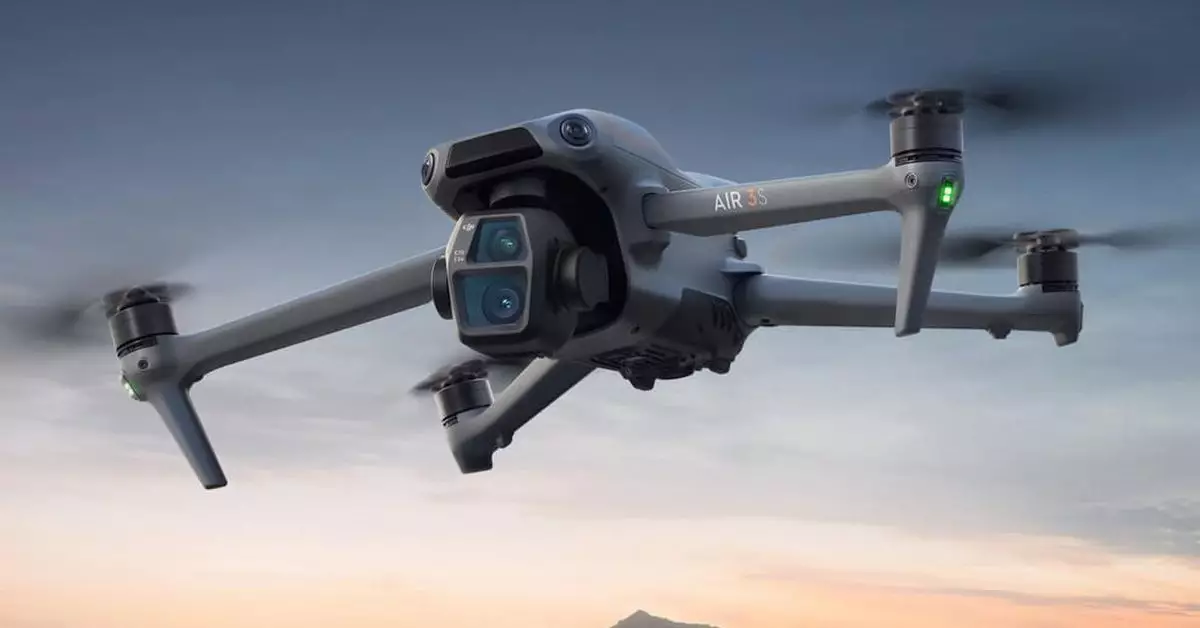The landscape of drone technology is rapidly evolving, yet leading manufacturers like DJI encounter significant hurdles, especially when it comes to market access in the United States. This article dissects the complications facing DJI, particularly its newly unveiled Air 3S drone, and the broader implications for the drone industry amid U.S. regulatory scrutiny.
DJI, a major player in the drone manufacturing sector, faces a critical barrier: import restrictions imposed by U.S. authorities. According to statements from the company, the challenges stem not from an outright ban on its products but from heightened scrutiny by the Department of Homeland Security (DHS). The DHS appears to be focusing on the origins of imported goods, particularly those produced in China, as part of an effort to ensure compliance with U.S. laws regarding human rights, specifically the Uyghur Forced Labor Prevention Act (UFLPA).
The implications of these regulations are significant. DJI has announced that the Air 3S, its flagship consumer drone, will not be available for retail sales in the United States. The decision underscores a complex interaction between commerce and geopolitics, revealing how regulatory landscapes can directly impact consumer access to technology products.
At the heart of this situation lies the UFLPA, which aims to prevent the importation of products made with forced labor, particularly in the Xinjiang region of China. DJI has vehemently defended itself against claims that it utilizes forced labor in manufacturing processes. In fact, the company maintains that it produces its drones solely in locations like Shenzhen and Malaysia. To address the U.S. government’s concerns, DJI has been proactive in sending documentation to Customs officials to clarify its operational practices and supply chain governance.
Despite DJI not being on the UFLPA Entity List, it was previously subjected to scrutiny by the Department of Commerce due to allegations regarding its involvement with the Chinese government’s surveillance activities targeted at Uyghurs. This caustic backdrop further complicates its business activities in a crucial market.
Potential Legislation and Its Impact on DJI
Another layer of complexity arises from potential legislative measures. The U.S. House of Representatives passed a bill that could effectively ban the importation of DJI drones. However, for such measures to become law, they must clear the Senate, which, upon revision, removed the initial ban but allowed it to be reintroduced as an amendment. The ongoing debate reflects a broader governmental effort to reassess foreign technological dependencies, particularly concerning national security.
Should such legislation pass, the ramifications could extend beyond import limitations. While existing DJI drone owners may still operate their devices, new purchases could be dramatically affected. Additionally, regulatory agencies like the FCC may revoke the authorization for DJI gadgets to operate within U.S. airspace, which would compound the challenges faced by both consumers and retailers.
Drones and National Security Concerns
National security as a rationale for these restrictions cannot be underestimated. The U.S. government’s unease regarding foreign-made technology—particularly from China—stems from fears about surveillance and data privacy. As UAVs (unmanned aerial vehicles) become increasingly integral in sectors such as agriculture and public safety, the government’s vigilance in scrutinizing manufacturers like DJI intensifies.
Despite these obstacles, DJI’s commitment to resolving the import issues is evident. The company expresses optimism about reaching a resolution that would allow it to expand its offerings beyond its online store. Given the growing interest in drone technology, the desire for swift resolution is palpable—not just from DJI, but also from consumers who are eager to experience the latest advancements in drone capabilities.
As the landscape unfolds, DJI must navigate a complex interplay of regulatory compliance, public perception, and competitive strategy. The unfolding situation presents a critical learning opportunity for manufacturers within the tech sector, illustrating how geopolitical tensions can evoke profound effects on market accessibility. The resolution of these import restrictions will not only shape DJI’s future but also influence the overarching dynamics of the drone market in the U.S.
DJI stands at a crossroads where its success hinges on transparency, advocacy, and the ability to adapt to the regulatory frameworks that govern how technology converges with international relations. As debates surrounding human rights and national security continue, the future of drone technology, particularly that of DJI, remains a focal point for both innovation and oversight.


Leave a Reply